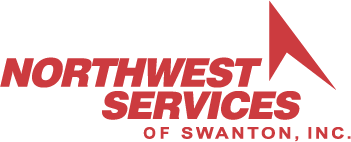
Major changes are coming for the heating and cooling industry! Cooling systems transitioning from R-410a to newer refrigerants like R-454B refrigerant and R-32 refrigerant will be coming in 2025. These new coolants are engineered to be more beneficial to the environment and meet new regulations about global warming. But what does that mean for your existing HVAC system and future services?
This transition will decrease the environmental footprint of our air conditioning systems. In 2025, new AC systems will use new class of refrigerants that are more compatible with climate goals. If you're thinking about getting an AC replacement soon, this is the perfect time to explore how these new refrigerants can impact your home's comfort.
Why Exactly Is R-410a Being Phased Out?
For years, R-410a was the go-to refrigerant for residential air conditioners because it worked so well. But research revealed that R-410a still contributes to global warming. In response, the Environmental Protection Agency (EPA) established a strategy back in 2021. The industry will steadily phase out R-410a to make room for refrigerants that are more eco-friendly.
The HVAC industry has made shifts like this before. When the industry moved away from using R-22 (commonly called Freon) to R-410a, residents like you had to adjust. And similarly, this shift will impact how systems are constructed as well as the recommended procedures for HVAC maintenance. Both homeowners and HVAC technicians need to plan for these new refrigerants if they want to continue enjoying the most secure, most energy-efficient cooling possible.
Which New Refrigerant Is Replacing R-410a?
The upcoming refrigerants fall under the new "A2L" classification and encompass the newest R-454B refrigerant and R-32 refrigerant coolants. They're engineered to offer the same powerful cooling while significantly reducing their global warming potential (GWP) compared to R-410a.
R-454B refrigerant is anticipated to be especially useful due to its GWP being around 78% less than R-410a. Although R-454B refrigerant is believed to be more flammable than R-410a, enhancements to system configurations and maintenance practices will ensure servicing is just as safe to perform. In addition, contemporary cooling systems using R-454B refrigerant are considerably more energy efficient, contributing to substantial savings on energy bills over time, especially if you maintain your system with routine HVAC maintenance.
This switch isn't only about changing the refrigerant—it affects the whole HVAC system because the components of R-454B refrigerant make it incompatible with older systems. In time, every residence and business using R-410a will have to transition to one of the new systems.
R-410a Replacement: What Should I Consider in Order to Make the Shift to New HVAC Refrigerants?
Transitioning to the new refrigerants will not be as easy as substituting what's used in your home's HVAC system. That's because the unique properties of R-454B refrigerant and R-32 refrigerant mean you can't use the new refrigerants in a system designed to use R-410a. But don't worry—you can still use your current R-410a system for now. Just remember that as time passes, the expense of repairs and tune-ups will increase as R-410a becomes scarcer.
Anticipating the changes is the best way to manage things. If your AC system is already nearing the end of its lifespan, this is the best time to contemplate switching to a newer model that uses the new R-454B refrigerant. Plus, the staff here at Northwest Services can help you in upgrading with flexible options for HVAC replacement financing.
What Type of Cooling Refrigerant Is in My HVAC System?
Unsure which refrigerant your AC system utilizes? In general, you can easily learn this information by examining the label on your outdoor unit. This label indicates the type of refrigerant, the model number and numerous other details about your cooling system.
But if you are unable to decipher the label or don't have your user manual, don't worry! You can always call one of the professional technicians at Northwest Services to help you in figuring it out. Get all the details you need by giving us a call at 419-574-6033.
